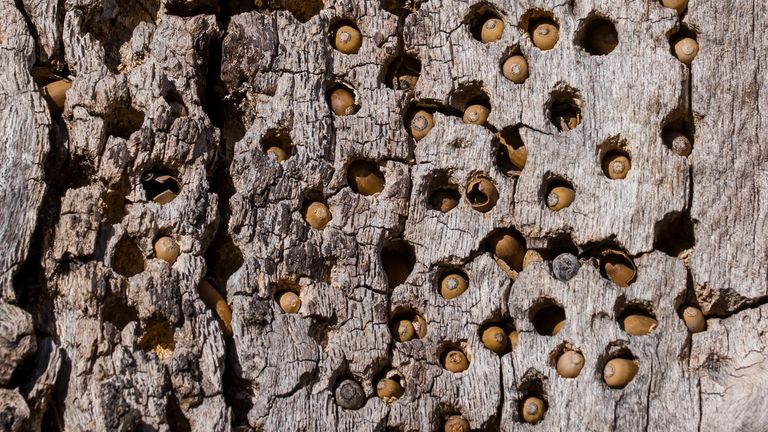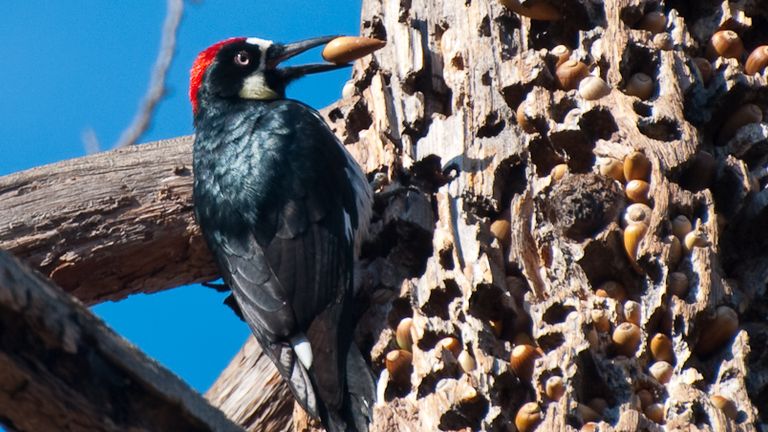Researchers monitoring woodpeckers using radio tags have made the startling discovery that the birds are going to war with each other.
According to direct observations and, crucially, data collated from these radio tags, the birds fight battles which last for days at a time over new territory, with individual engagements sometimes lasting for ten hours.
In some cases woodpeckers will wait for years to build a war-fighting coalition before launching an invasion targeting a “granary”, a structure built by the birds in which they stuff acorns into thousands of holes pecked into the bark of oak trees.
Although woodpeckers sometimes breed in monogamous pairs, field studies have shown that they also form breeding collectives – generally made up of three males and two females – known as a coalition.
These coalitions form the basis for the battles according to the study published in the journal Current Biology.
“When you’re approaching a big tree with a power struggle from far away, you’ll first hear a lot of acorn woodpeckers calling very distinctly, and see birds flying around like crazy,” explained the first author of the study, Dr Sahas Barve.
Usually these wars begin when acorn woodpeckers inhabiting a high-quality territory die, and rivals attempt to capture the vacant spot.
“When you get closer, you can see that there are a dozen or more coalitions of three or four birds fighting and posturing on branches,” added Dr Barve, who is currently a postdoctoral fellow at the Smithsonian National Museum of Natural History.
“One group has to beat all the others to win a spot in the territory, which is really, really rare in animals – even in fantasy novels it usually boils down to one army against the other,” the self-described bird nerd added.
These battles can be frenetic and challenging to directly observe amid the chaos of the birds rapidly flying around.
Fortunately, Dr Barve and his team used new radio telemetry technology to track the birds’ locations using tags strapped to the birds backs, allowing the team to monitor their movements and see how much time was spent fighting and where the combatants were travelling from.
Usually the war-fighting coalitions are formed of groups of non-breeding brothers or sisters from neighbouring territories. Some of these birds return day after day and fight for ten hours at a time.
“We didn’t think it could be that long because they have to be away from their home territory,” said Dr Barve. “When do they eat? We still don’t know.”
He and his team hypothesised that the woodpeckers would fight the hardest for territories closest to their current home, but found that actually more complex social cues might have been at play as the birds built up their coalitions.
“These birds often wait for years, and when there’s the right time and they have the right coalition size, they’ll go and give it their all to win a really good territory,” said Dr Barve.
The complex social behaviour even extended to observers – with dozens of additional birds of the same species often coming to watch the battles, some travelling more than 3km to do so for an hour or more – potentially gathering intelligence on their rivals.
Acorn woodpeckers have tight social networks, according to the researchers, and the spectators are “probably as interested in the outcome as the fighter is, although the warriors benefit more directly,” Dr Barve added.
“They potentially have friendships, and they probably have enemies,” he added.
“With our radio tag data, we can tell when two birds are at the same place at the same time. The next step is to try and understand how their social networks are shaped, and how they vary across the year.”


